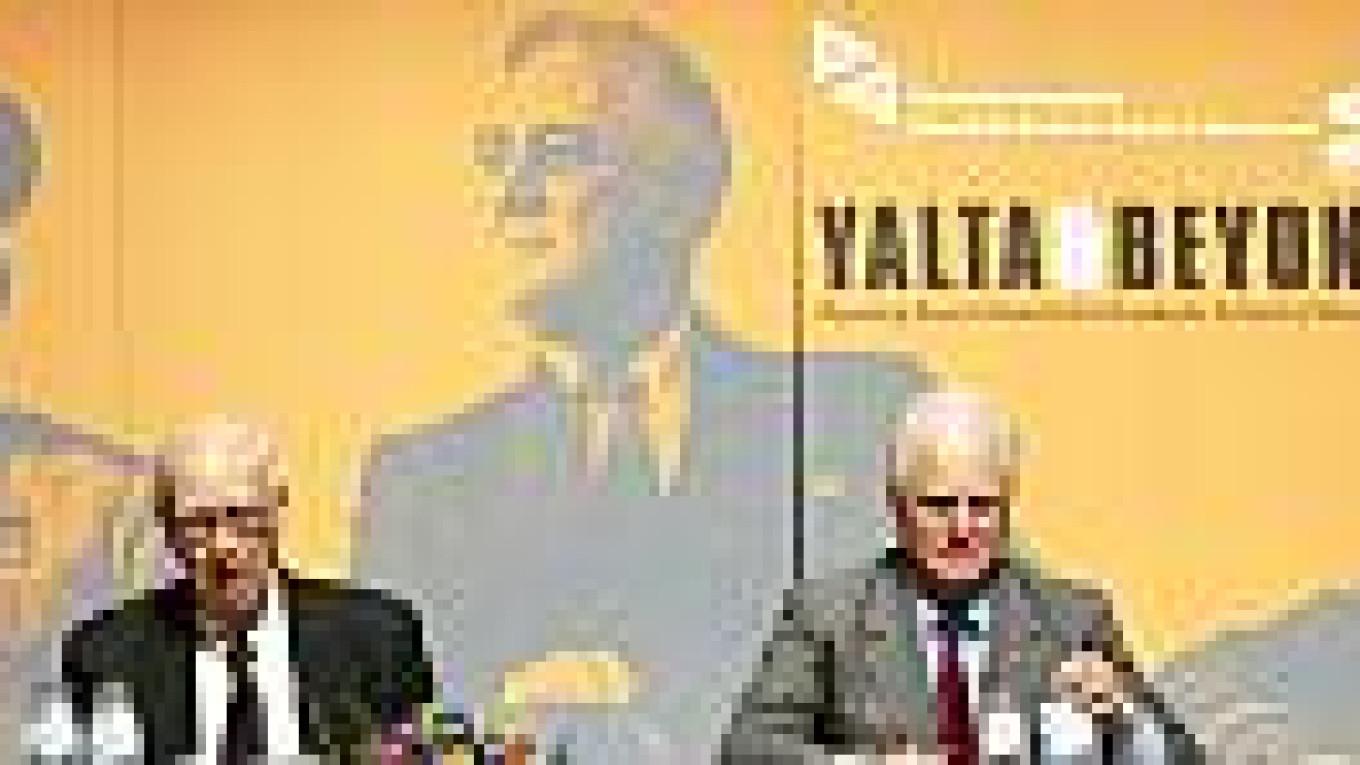The three grandsons, now elderly themselves, laughed often during their first meeting ever. And unlike their famous forebears, even the arguments were good-humored.
"My grandfather had the highest regard for your grandfather as a wartime leader," British author and politician Winston Churchill told Yevgeny Dzhugashvili, Stalin's grandson, a retired colonel and military historian.
Dzhugashvili said he felt "honored" to be Stalin's grandson, despite Stalin's reputation in the West as a murderous despot. "They say he did this and that. But he did everything to develop Russia," the grandson said.
Dzhugashvili said the three grandfathers were friendly during the famous wartime summit at the Ukrainian resort Feb. 4-11, 1945, but that Stalin viewed the United States and Britain as implacable enemies.
"They didn't have allies, only colonial interests," he said. "Danger united them. As soon as the war was over, Churchill wanted to start a war against the Soviet Union."
But Churchill said his grandfather "was concerned what would be the fate of Europe with the Red Army on its doorstep and at its throat."
The three grandsons differed sharply about the war and what happened at Yalta, which led to Soviet domination of eastern Europe for decades. The conference took place as Stalin's army was poised for a final attack on Berlin after occupying Poland.
"Nobody got what they wanted from Yalta except the Russians, who were in a position to get it," said Curtis Roosevelt, an educator and former United Nations diplomat.
He said the decisions made at Yalta were mostly about accepting reality after the United States' late entry into the war. Russia entered the war in June 1941 after Nazi Germany invaded; the United States began the fight in Europe after Japan attacked Pearl Harbor on Dec. 7, 1941.
Churchill's grandson agreed that Russia got the most out of Yalta. "Possession is nine-tenths of the law. Marshal Stalin possessed half of Europe by the time of the meeting, and there was nothing [Churchill and Roosevelt] could do about that."
Dzhugashvili said the divisions made at Yalta were fair because of the sacrifices by the Soviet Union in defeating Germany. Russia's wartime losses were in the millions. He added that not all the conference's decisions were military. "There were some very good things in Yalta. The United Nations was created at Yalta," he said.
A Message from The Moscow Times:
Dear readers,
We are facing unprecedented challenges. Russia's Prosecutor General's Office has designated The Moscow Times as an "undesirable" organization, criminalizing our work and putting our staff at risk of prosecution. This follows our earlier unjust labeling as a "foreign agent."
These actions are direct attempts to silence independent journalism in Russia. The authorities claim our work "discredits the decisions of the Russian leadership." We see things differently: we strive to provide accurate, unbiased reporting on Russia.
We, the journalists of The Moscow Times, refuse to be silenced. But to continue our work, we need your help.
Your support, no matter how small, makes a world of difference. If you can, please support us monthly starting from just $2. It's quick to set up, and every contribution makes a significant impact.
By supporting The Moscow Times, you're defending open, independent journalism in the face of repression. Thank you for standing with us.
Remind me later.


